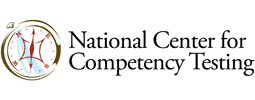Program Overview
The Clinical Medical Assistant (CMA) program is designed for individuals who already have a foundation in healthcare and possess a solid understanding of administrative procedures. This program focuses exclusively on the clinical skills necessary for entry-level Medical Assistants working in hospitals, clinics, doctor’s offices, and other healthcare environments.
As the healthcare industry evolves, with technological advancements and a growing patient population, the role of Medical Assistants has become even more essential. This program provides in-depth training in clinical procedures, equipping you with the practical skills needed to thrive in fast-paced healthcare settings.
If you already have healthcare experience or are familiar with administrative tasks and procedures, this program will help you specialize in clinical skills, making you a highly qualified candidate for various roles in the healthcare field. However, if you seek a more comprehensive program that combines both administrative and clinical expertise, we recommend our Medical Assistant program (900 hours), which offers a broader scope of training.
This clinical-focused curriculum is perfect for those ready to focus specifically on hands-on patient care and clinical responsibilities, without the administrative components.
ENTRANCE REQUIREMENTS:
- You need to be at least 18 years old
- Minimum High School Diploma or Equivalency Diploma (GED) or pass an Entrance Exam.
Why Medical Assistants are Essential to Healthcare?
Medical Assistants play a critical role in ensuring patients receive the highest quality of care from the moment they enter a healthcare facility until they leave. They are the backbone of the medical team, providing both administrative and clinical support that keeps operations running smoothly. For Medical Assistants, the work is not only professionally rewarding but also deeply fulfilling on an emotional level, as they directly impact patient well-being and experience.
In addition to making a meaningful difference in patients’ lives, a career as a Medical Assistant opens the door to a range of opportunities within the healthcare field. With specialized training, you’ll gain the foundational skills necessary to start your career and can use this role as a stepping stone to further advancement in healthcare. Whether you’re just starting out or looking to expand your expertise, becoming a Medical Assistant is a fulfilling and impactful way to contribute to the healthcare system.
Please visit our post “Medical Assistant Salary in New York” to see average salary and hourly wage for medical assistants in NYC.
Please visit our Blog for more news, discussions.
Certification Eligibility of Medical Assistants by the National Healthcareer Association (NHA)
- Certified Clinical Medical Assistant (CCMA)
- Certified EKG Technician (CET)
- Certified Phlebotomy Technician (CPT)
What Does a Clinical Medical Assistant Do?
Clinical Medical Assistants are true team players on the healthcare team. Their tasks vary greatly, depending on what employers expect from them and also the area of medicine in which they are employed. Some possible job duties of Clinical Medical Assistants include the following:
- Conduct patient interviews to assess chief complaints and medical histories.
- Accurately measure and record vital signs, ensuring thorough documentation.
- Perform phlebotomy and EKG procedures with precision and care.
- Prepare patients for exams, x-rays, and other diagnostic procedures.
- Set up and sterilize exam rooms and equipment for medical procedures.
- Assist physicians during various procedures, including biopsies, x-rays, and endoscopies.
- Remove sutures (stitches) and provide follow-up care to ensure proper healing
Topics Covered:
- Infection Control and OSHA
- Anatomy, Physiology & Medical Terminology
- Patient Safety
- Medical Office Clinical Practices
- Phlebotomy & EKG
- Externship in a Medical Office (100 hrs)





